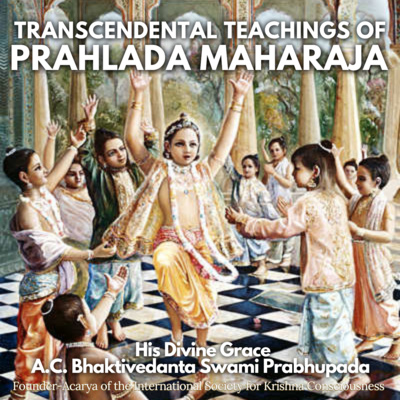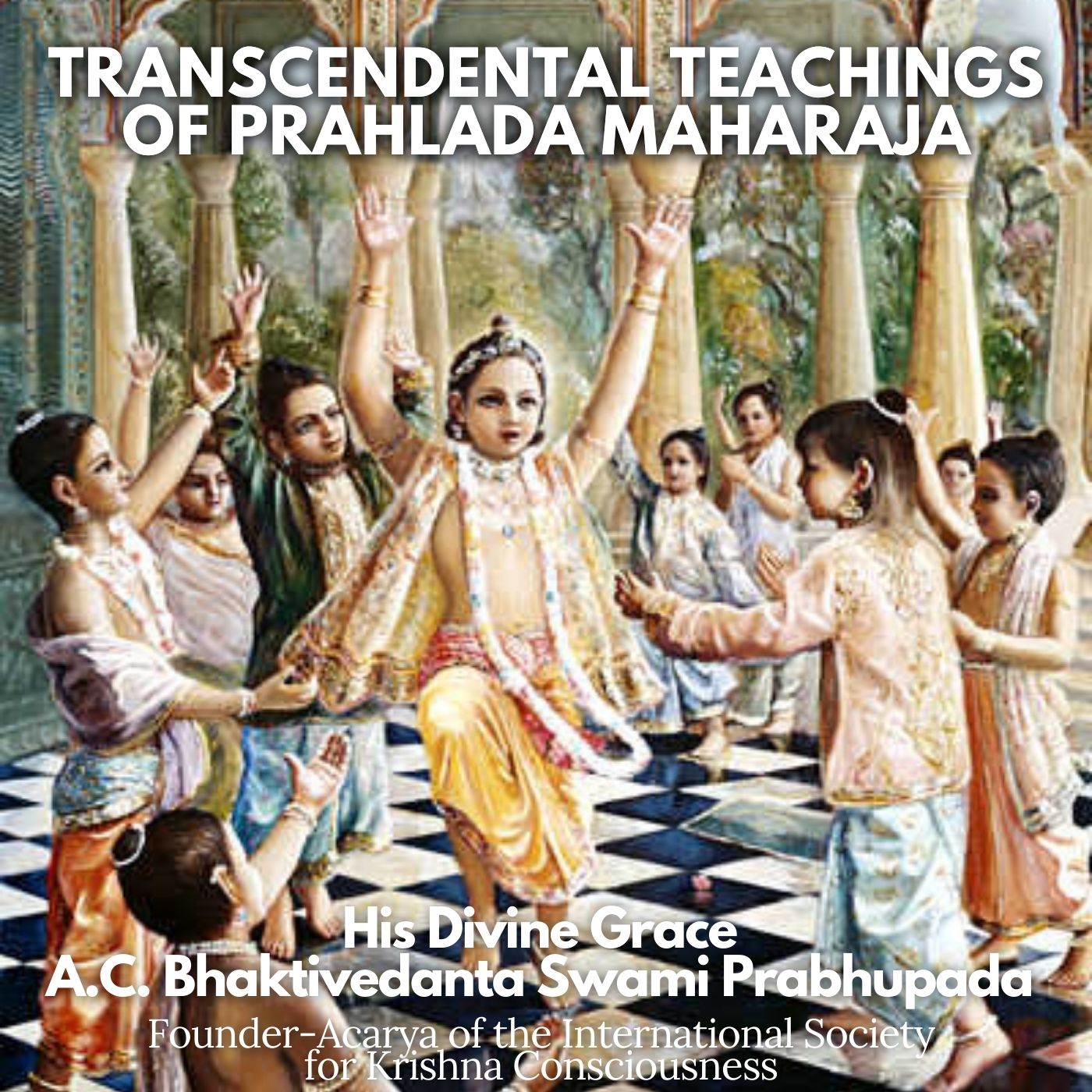If you think you are too young to begin your spiritual life – meet Prahlada Maharaja, a 5-year-old little boy who speaks with such profound wisdom that people rarely acquire in a hundred years. His math is simple – so many years of life are wasted in sleep, maintenance of the body, childhood plays, and so many duties and family obligations, where is the time for spiritual advancement? Is it all meant to be just us running in a rat-wheel our entire life, being self-oblivious? God-oblivious? This little boy was so pure that no matter how many times His demoniac father tried to kill him – his faith in the Lord did not shake a bit, and he was saved. The poison didn’t work, angry snakes didn’t bite him, spells and black magic was powerless, mad elephants didn’t give him a single scratch. And the Lord Himself manifested out of a pillar to confirm the words of his little devotee boy – God is everywhere. His story is elaborately presented in Srimad Bhagavatam 7th canto, we’ll get there later, but in this small book, there is a summary of the speech that he gave to his demoniac classmates. A speech that stopped them from spoiling their lives. A speech that made them change their minds and attitudes towards spiritual life, and join their friend Prahlada in his devotional attitude and love for the Supreme Lord.
Episodes playlist 099-104

Reading books by Srila A.C. Bhaktivedanta Swami Prabhupada daily. Each of these books is a literary masterpiece, they have all the answers to any questions of life and everything necessary to uplift and nourish our soul, develop our loving relationship with God, Krishna, and help us relish our adventurous spiritual journey. Such a deep, bonafide, theological science based on Vedic scriptures has never been presented like this before. Chant Hare Krishna, dive into these books, be happy and make others happy! From Mayapur with love, Your humble servant, Sulalita devi dasi
Starting this incredible book today! Learn about who is the dearmost person to all of us and why | Read this awesome book along with us: biglink.to/prahlada | Find us on social media! Facebook “Sravanam Diaries” | Instagram & Tumblr @sravanamdiaries | Email: sravanamteam@gmail.com

One of my favorite quotes
[frontpage_news widget=”115″]Transcendental Teachings of Prahlāda Mahārāja | Chapter 3
The Śrīmad-Bhāgavatam confirms that material enjoyment is based upon nothing more than the sexual combination of man and woman. In the beginning a boy thinks, “Oh, that girl is nice,” and the girl says, “That boy is nice.” When they meet, that material contamination becomes more prominent. And when they actually enjoy sex, they become more attached, completely attached. How? As soon as a boy and girl are married, they want an apartment. Then they have children. And when they have children, they want social recognition – society, friendship, and love. In this way their material attachment goes on increasing. And all of this requires money. A man who is too materialistic will cheat anyone, kill anyone, beg, borrow, or steal – anything to bring money. He knows that his buildings, his family, his wife and children cannot continue to exist perpetually. They are just like bubbles in the ocean: they have come into existence, and after a little while they will be gone. But he is too much attached. He will sacrifice his spiritual advancement for the pursuit of money to maintain them. His perverted consciousness – “I am this body. I belong to this material world. I belong to this country. I belong to this community. I belong to this religion. I belong to this family.” – becomes greater and greater.
Where is his Kṛṣṇa consciousness? He becomes so entangled that money becomes more valuable to him than his own life. In other words, he can risk his life for money. The householder, the laborer, the merchant, the thief, the dacoit, the rogue – everyone is after money. This is illusion. One loses himself in the midst of this entanglement.
Prahlāda Mahārāja says that in this state, when you are too much implicated in materialism, you cannot cultivate Kṛṣṇa consciousness. Therefore one should practice Kṛṣṇa consciousness from early childhood. Of course, Lord Caitanya Mahāprabhu is so kind that He says, “Better late than never. Even though you missed the opportunity to begin Kṛṣṇa consciousness from childhood, begin now, in whatever position you are.” That is Caitanya Mahāprabhu’s teaching. He never said, “Because you did not begin Kṛṣṇa consciousness from your childhood, you cannot make progress.” No. He is very kind. He has given us this nice process of chanting Hare Kṛṣṇa, Hare Kṛṣṇa, Kṛṣṇa Kṛṣṇa, Hare Hare/ Hare Rāma, Hare Rāma, Rāma Rāma, Hare Hare. Whether you are young or old – no matter what you are – just begin. You do not know when your life will be finished. If you chant sincerely, even for a moment, it will have great effect. It will save you from the greatest danger – becoming an animal in your next life.
Although only five years old, Prahlāda Mahārāja speaks just like a very experienced and educated man because he received knowledge from his spiritual master, Nārada Muni. That is disclosed in the next chapter of the Śrīmad-Bhāgavatam (7.7). Wisdom does not depend on age, but on knowledge received from a superior source. One cannot become a wise man simply by advancement of age. No. That is not possible. Knowledge has to be received from a superior source; then one can become wise. It doesn’t matter whether one is a five-year-old boy or a fifty-year-old man. As it is said, “By wisdom one becomes an old man, even without advanced age.”



